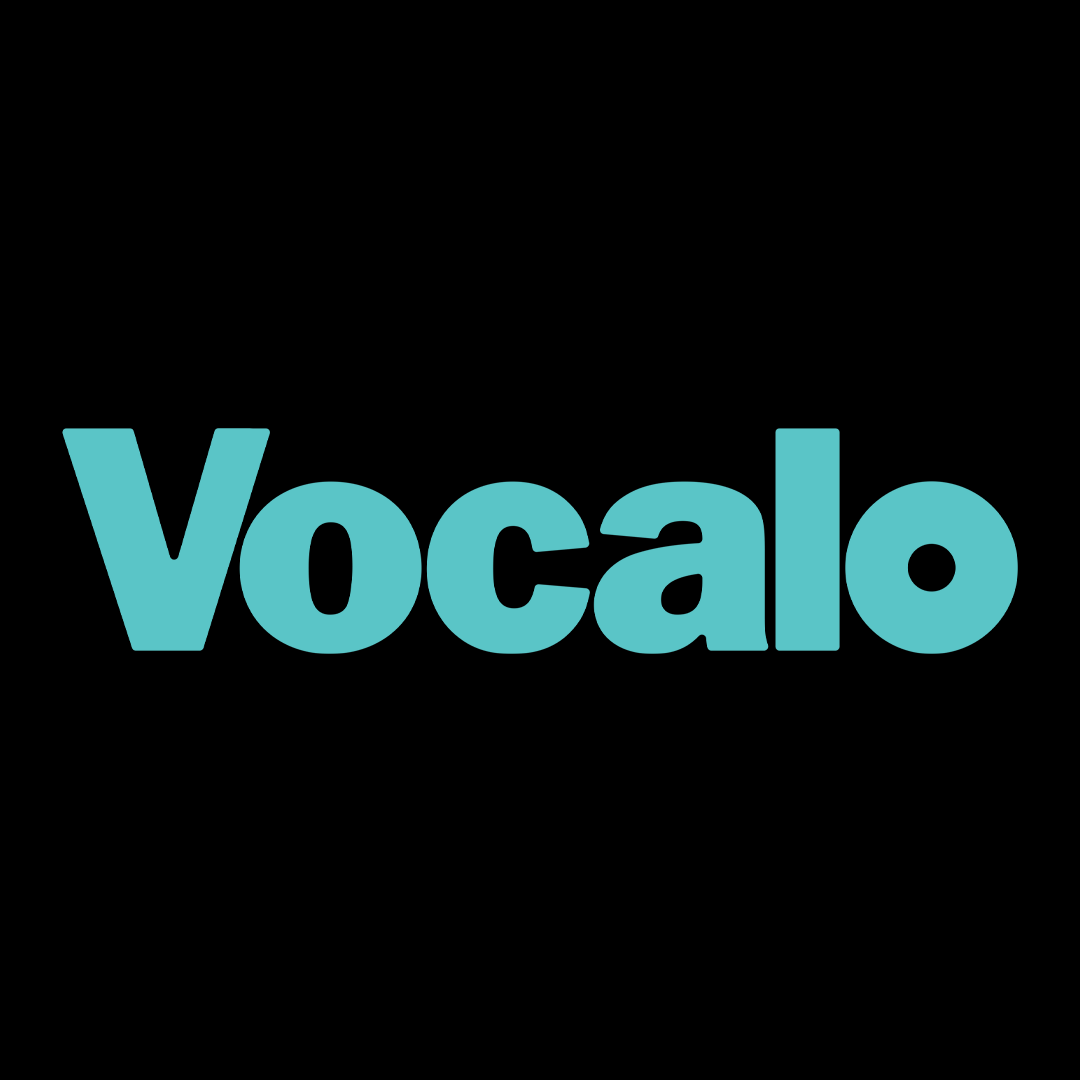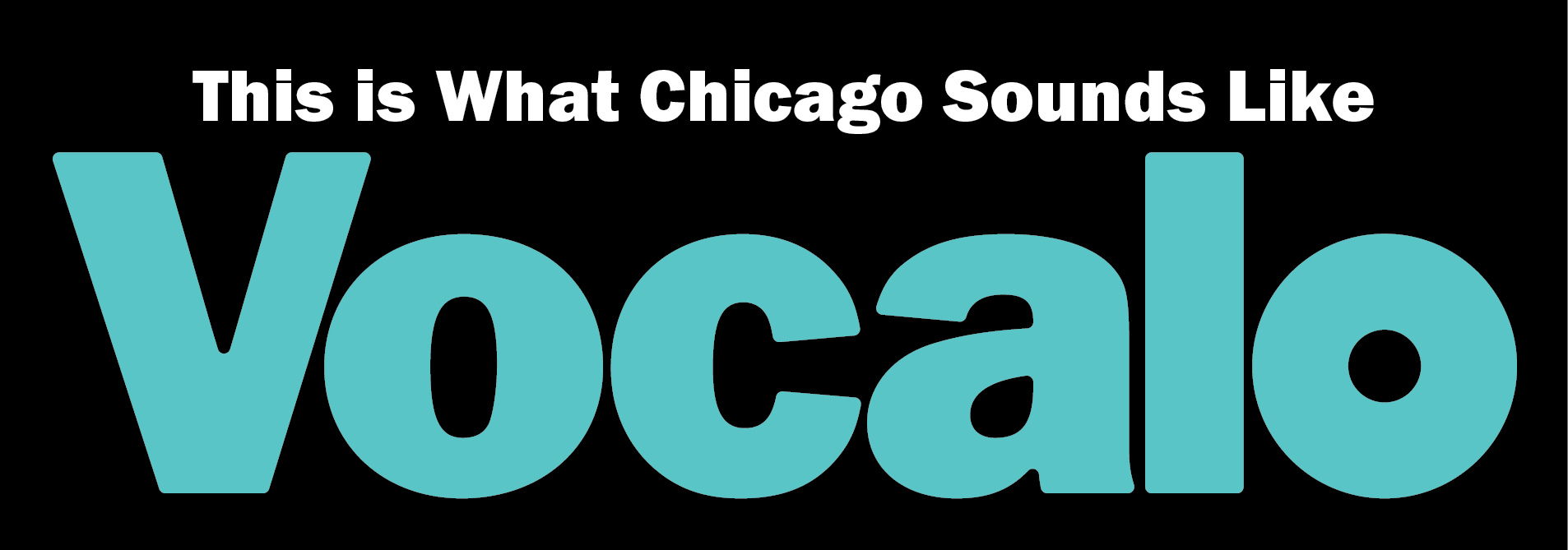Through Film, Adam L. McMath Preserves Community History
Written by Vocalo Radio on June 29, 2023
Adam L. McMath is equipping the next generation of creators with the tools to express themselves through filmmaking.
Adam L. McMath is the executive director of Black Alphabet, a nonprofit arts organization focusing on uplifting the stories of Black and LGBTQ creators through film. McMath has led the organization for the past five years but has been part of its ranks since its inception in 2013.
McMath initially came on as a filmmaker with aspirations to feature community members knowledgeable about the rich history of Chicago’s Black LGBTQ community. He’s especially focused on widening access to film, and stresses the importance of preserving the past and addressing the present through documentary work and other mediums.
“We leverage art to address things that disproportionately impact our community, be that mental health, HIV prevention, testing, etc.,” McMath expressed. “It really has become an effective way to get folks in to talk about different issues that impact our community, and then figure out some outcomes.”

McMath first felt the power of film at 10 years old, when he saw Spike Lee’s Malcolm X (1992) and learned about his mother and grandmother’s own experiences protesting throughout the civil rights era. He notes he felt drawn to the art of filmmaking because of its ability to empower people to tell their stories and to inspire action.
“It made me realize that I didn’t know a lot about what happened in the ‘60s and ‘50s and before,” he recalled. “I really saw that the film taught me, as well as entertained me and really opened my eyes to how people lived … It led me to eventually one of my first protests and figuring out how to speak to power and how to make change in this world.”
Now, Black Alphabet has grown beyond solely a film festival: they serve as a conduit for resources to the community, offering courses and programming to leave individuals with the skills to express themselves creatively. McMath feels enabling future generations with creative expression — through film, writing and other artistic mediums — is crucial to preserve history and pushing the community forward.
“Now is the time to be a storyteller,” he said. “Everybody has the tools now. Some people have the tools in their pocket with their phone.”
I just really want to do my work and pass down what I learned to the next generation so they can continue to do the work.”
For this segment of “This Is What Chicago Sounds Like,” Adam McMath discusses his work as a filmmaker, the importance of preserving community history and how he hopes to empower future generations of creators.

Introduce yourself and your work in a few words.
My name is Adam L. McMath, and I’m a filmmaker, a community organizer and the executive director of Black Alphabet.
What is Black Alphabet?
Black Alphabet was started 10 years ago this year, back in 2013, by four founders. It was really just founded as a film festival organization that highlighted Black LGBTQ voices through film. I came on board as a filmmaker, actually, that first year. I directed a film about 10 masculine lesbians, AKA “studs,” called Misunderstud, and it featured some community members that were really just dynamic, and one in particular, Jackie Anderson, who passed on recently.
Jackie Anderson: Jackie Anderson, I am an African American lesbian, butch, but sometimes I’m a stud. That’s at least what some girls call me.
[She] was in her 70s, and she came over to my house and I did this crew documentary in my living room at the time. She was just game and she was really into it. Of course, when you debut work in front of a large audience, you’re a nervous wreck. I got a standing ovation and my producers got a standing ovation after we screened that, and the founders of the organization asked me to join the board. And as the years went on, I’ve done every role at the organization, until about five years ago, I took over as executive director and president. We still do the film festival, but we leverage art to address things that disproportionately impact our community, be that mental health, HIV prevention, testing, etc. And it really has become an effective way to get folks in to talk about different issues that impact our community, and then figure out some outcomes. If you were to look at the organization, it feels almost like a community service organization, but it’s not. It’s really we bring people in, even if they’re not artists, sometimes they take art courses — we’re going to offer some creative writing courses later on this year — and really help them hone that craft, then we also help them put that out into the world. I think programming for us, by us, is important for any community, particularly BIPOC communities.

What got you interested in filmmaking?
One of the first films I remember really having an impact on people around me was Malcom X.
Malcom X: You’re an African who happens to be an American. You have to understand the difference. We didn’t come over on the Niña, the Pinta, and the whatchamacallit! We didn’t land on Plymouth Rock, Plymouth Rock landed on us. Landed right on top of us.
I was about 10 years old. It made me realize that I didn’t know a lot about what happened in the ‘60s and ‘50s and before. I really saw that the film taught me, as well as entertained me and really opened my eyes to how people lived, and the struggle that even my grandmother suppressed, growing up in the ‘30s and ‘40s in this country. And of course, right after I saw the film, I asked her, I was like, “Did you know any of this?” And she was like, “Yeah, I was there.” … She would go on and tell me, “Oh, I went to a Martin Luther King speech, and I protested, and your mom protested.” I asked my mom, and she was like, “Yeah, I protested back in the ‘60s, but everybody did.” It led me to eventually one of my first protests and figuring out how to speak to power and how to make change in this world. So I really was drawn into the art of cinema, because of how it empowered me, and how it can empower other people.
Now is the time to be a storyteller. Everybody has the tools now. Some people have the tools in their pocket with their phone. I just really want to do my work and pass down what I learned to the next generation so they can continue to do the work. I want to remove the barriers for them to do that work.

Where are you from?
I am originally from St. Louis, Missouri. Back in the year 2000, I went to my parents, who were both business owners at the time, and I told them I want to go to art school, I really don’t want to go into the family business. One was a daycare and one was an architect. I told them I wanted to go to film school and be a filmmaker like Scorsese and Spike Lee and Spike Jonze and all those folks at the time. And, to my surprise, they said, “Okay.” So I’ve been in Edgewater for 12 years now. I walk out the back door of the building and sit on the beach and meditate every morning, when it’s not 10 below. You just have access to little shops here and we have great coffee shops in the area. But Edgewater is really a community feel. There’s neighbors that live five buildings down that I’ve seen almost every couple of days for the last 10, 12 years.
How has Chicago influenced you and your work?
Chicago has influenced my work in unimaginable ways. I think the rich history of Chicago is undeniable. It’s really, for me, an inspirational city, working class city, and some really, really great, great artists in the city that a lot of people outside of the city don’t talk about.
Is there a genre you gravitate towards in your work?
I really love documentaries. I’m currently working on a project right now with the organization that I run to really tell the history of Black LGBTQ folks in the city of Chicago. The person that came up with the Bud Billiken name was a Black LGBTQ person, most people don’t know that, his name is Willard Motley. He was a writer for the Chicago Defender. Then we had Joe’s Deluxe, which was a club in the 1950s and ‘60s on the South Side that was world-renowned for its drag shows. I think people in our community know about the ‘80s and the Warehouse and all that stuff. But we don’t know, really, what happened before that, because there’s a whole generation of people that are no longer here that can tell those stories.
Storytelling is the genesis of communication, life and art, in my opinion. It’s the oldest form of really getting the message to people. Film as a visual and immersive medium, I think, is critical for people to not only experience people that look like them and love like them on screen, but really, it helps with people understanding — in our community, in particular — understanding that there is nothing new. We’ve been around for hundreds of years.

Why film for you? What is it about this medium that calls to you?
Ultimately, a part of oppression is to erase our stories or our history and our past. And it’s important for us to control that narrative and to deliver all of our history to people’s doorsteps, whether that’s on YouTube or on a big screen or wherever they consume media and film. I believe that most of our community has some kind of artistic sensibility. I think a lot of culture came from our community. If you look at Beyoncé, Black queer people kind of influenced a lot of the stuff that she does. If you look at Michael Jackson, his main choreography was in the community. Then, of course, you have legends like Alvin Ailey, and In The Like that really did some important and critical work that inform the culture and shape the culture. I think we should celebrate that.
I want to uplift young folks that don’t think they can do it, and let them know that you actually can. It’s hard work, but it’s easier than you think to get into.
Since 2016, we have been profiling people who give their all to Chicago and enrich us socially and culturally by virtue of their artistry, social justice work and community-building. Take a listen. Read their words. Become inspired.

Interview and audio production by Ari Mejia
Written introduction by Morgan Ciocca
Transcription and editing for length and clarity by Imani Warren
Photography by Ari Mejia, edited by Morgan Ciocca
More from Vocalo:
 Vocalo Radio
Vocalo Radio 










